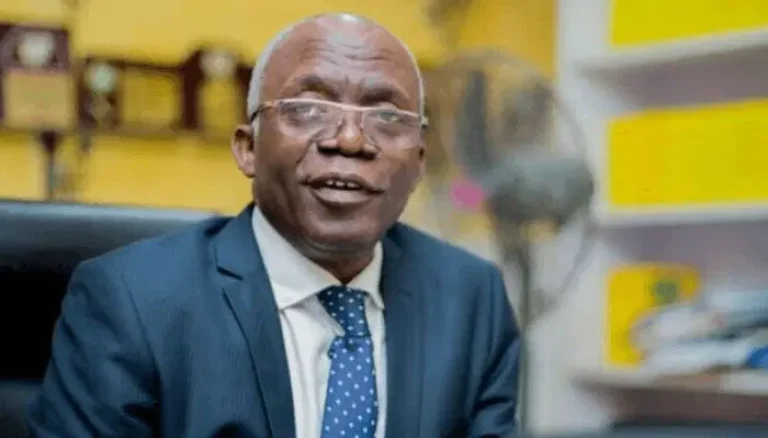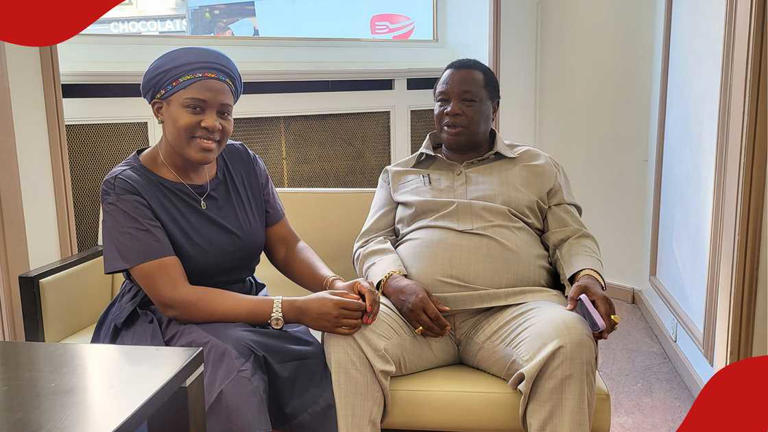
PRESIDENT Muhammadu Buhari yesterday explained his administration’s push for the restructuring of the N23.7 trillion overdraft loans taken from the Central Bank of Nigeria (CBN).
If the National Assembly fails to approve the conversion of the overdraft loans into standardised bonds, the government will pay additional N1.8 trillion interest to service the apex bank’s loans, otherwise known as “Ways and Means”, the President warned.
This will further compound the country’s ballooning debt crisis.
Buhari said approving his request by the National Assembly would be in the overall interest of the economy.
Speaking during the signing of the N21.83 trillion 2023 Appropriation Bill into Law at the Council Chambers of the Presidential Villa, Abuja, the President appealed to the National Assembly to approve the loan-to-bond restructuring to stave off huge interest payment.
He raised objection to the adjustments did to proposal he submitted to the National Assembly before its passage by the lawmakers.
The National Assembly adjusted the Appropriation Bill from N20.05 trillion to N21. 83 trillion
The Senate, last week, delayed action on the president’s request to convert N23.7 trillion “Ways and Means” to 40-year bonds.
Buhari appealed to the upper and lower chambers of National Assembly to reconsider their stand on his proposal to securitize the “Ways and Means” balance at the CBN.
He said: “I also urge the National Assembly to reconsider its position on my proposal to securitize the federal government’s outstanding Ways and Means balance at the Central Bank of Nigeria (CBN).
“As I stated, the balance has accumulated over several years and represents funding provided by the CBN as lender of last resort to the government to enable it to meet obligations to lenders, as well as cover budgetary shortfalls in projected revenues and/or borrowings.”
According to him, he had no intention to fetter the right of the National Assembly to interrogate the composition of this balance, which can still be done even after granting the requested approval.
Buhari said: “Failure to grant the securitization approval will however cost the government about N1.8 trillion in additional interest in 2023 given the differential between the applicable interest rates which is currently Monetary Policy Rate (MPR) plus three per cent and the negotiated interest rate of nine per cent and a 40-year repayment period on the securitised debt of the Ways and Means.”
Signing the 2023 budget of N21.83 trillion into law, Buhari said he had examined the changes made by the National Assembly to the budget figures, including additional revenue of N765.75 billion and an unfunded N553.46 billion deficit.
He, however, explained that he had to sign the document in order to allow the immediate commencement of its implementation because of the imminent transition process to a new elected administration.
The President directed the Minister of Finance, Budget and National Planning to engage with the legislature to revisit some of the changes made to the Executive budget proposal, saying “it is my hope that we will receive cooperation in this regard from the National Assembly.”
Buhari received the Bill, which was passed by the Senate and House Representative last week, from his Senior Special Assistants on National Assembly Matters, Senator Jide Omoworare (Senate), and Nasiru Ila (House of Representatives).
Signing last year’s Appropriation Bill in December 2021, the President frowned at what he described as some “worrisome changes” made to the document by the National Assembly.
He spoke of his intention to revert to the National Assembly over the displeasing development.
Also yesterday, the President said: “The 2023 Budget that I have the honour of signing into law today (yesterday) provides for aggregate expenditures of N21.83 trillion, an increase of N1.32 trillion over the initial Executive Proposal for a total expenditure of N20.51 trillion.
“As is customary, the Honourable Minister of Finance, Budget and National Planning will subsequently provide more details of the approved budget and the supporting 2022 Finance Act.
“We have examined the changes made by the National Assembly to the 2023 Executive Budget proposal. The amended fiscal framework for 2023 as approved by the National Assembly shows additional revenues of N765.79 billion, and an unfunded deficit of N553.46 billion.
“It is clear that that National Assembly and the executive need to capture some of the proposed additional revenue sources in the fiscal framework. This must be rectified.
“I have also noted that the National Assembly introduced new projects into the 2023 budget proposal for which it has appropriated N770.72 billion. The National Assembly also increased the provisions made by Ministries, Departments and Agencies (MDAs) by N58.55 billion.
“Nevertheless, considering the imminent transition process to another democratically elected government, I decided to sign the 2023 Appropriation Bill into law as passed by the National Assembly to enable its implementation to commence without delay.
“I have, however, directed the Minister of Finance, Budget and National Planning to engage with the Legislature to revisit some of the changes made to the Executive budget proposal, and it is my hope that we will receive cooperation in this regard from the National Assembly.”
He directed the Ministry of Finance, Budget and National Planning to work towards early release of the 2023 capital votes to enable Ministries, Departments and Agencies (MDAs) commence the implementation of their capital projects for the delivery of key projects.
Reiterating that the 2023 Budget was developed to promote fiscal sustainability, macroeconomic stability and ensure smooth transition to the incoming administration, the President said it was also designed to promote social inclusion and strengthen the resilience of the economy.
He pledged that adequate provisions have been made in the budget for the successful conduct of the forthcoming general elections and the transition programme.
On achieving revenue targets, the President directed MDAs and Government Owned Enterprises (GOEs) to intensify their revenue mobilization efforts, including ensuring that all taxable organizations and individuals pay taxes due.
To achieve the laudable objectives of the budget, the President said relevant agencies must sustain current efforts towards the realization of crude oil production and export targets.
He said: “To augment available fiscal resources, MDAs are to accelerate the implementation of Public Private Partnership (PPP) initiatives, especially those designed to fast-track the pace of our infrastructural development.
”This, being a deficit budget, the associated Borrowing Plan will be forwarded to the National Assembly shortly. I count on the cooperation of the National Assembly for a speedy consideration and approval of the Plan.”
On the Finance Bill 2022, the President expressed regret that its review as passed by the National Assembly is yet to be finalised.
”This is because some of the changes made by the National Assembly need to be reviewed by the relevant agencies of government. I urge that this should be done speedily to enable me to assent into law,” he said.
Commending everyone’s efforts in getting the budget passed, Buhari said: “As I mentioned during the presentation of the 2023 Appropriation Bill, early passage of the budget proposal is critical to ensure effective delivery of our legacy projects, a smooth transition programme and effective take-off of the incoming Administration.
“I appreciate the firm commitment of the Ninth National Assembly to the restoration of a predictable January to December fiscal year, as well as the mutual understanding, collaboration and engagements between officials of the Executive and the Legislative arms of government.”
“These have made the quick consideration and passage of our Fiscal bills possible over the last four years.”
The President expressed the belief that the next administration would sustain the early presentation of the annual appropriation bill to the National Assembly to ensure its passage before the beginning of the fiscal year.
Buhari said: “I firmly believe the next Administration will also sustain the current public financial management reform efforts, further improve the budgeting process, and particularly maintain the tradition of supporting its Appropriation Bills with Finance Bills designed to facilitate their implementation.
“To sustain and institutionalise the gains of the reforms, we must expedite action and conclude work on the Organic Budget Law for it to become operational before the end of this administration.”
Acknowledging that “these are challenging times worldwide,” the President concluded his speech at the ceremony by expressing deep appreciation to Almighty God for His Grace, while commending the continuing resilience, understanding and sacrifice of Nigerians in the face of current economic challenges.
”As this administration draws to a close, we will accelerate the implementation of critical measures aimed at further improving the Nigerian business environment, enhancing the welfare of our people and ensuring sustainable economic growth over the medium- to long-term.”
On October 7, 2022, President Buhari presented the 2023 fiscal budget to the joint session of the National Assembly, where he proposed an annual budget of N20.51 trillion for the year 2023, a 19.8 per cent increase when compared to the N17.13 trillion approved for 2022 including the supplementary budget.
The 2023 Appropriation Act, tagged: “Budget of Fiscal Sustainability and Transition”, is the eighth and final budget Buhari would be signing as President of Nigeria.
Senate President Ahmad Lawan explained last week the delay of the passage of the appropriation was due to some anomalous figures presented by the executive to the legislature for consideration.
At the signing were Lawan; House of Representative Speaker Femi Gbajabiamila; Secretary to the Government of the Federation (SGF), Boss Mustapha; Chief of Staff, Ibrahim Gambari; Attorney-General of the Federation and Minister of Justice, Abubakar Malami; Minister of Finance, Budget and National Assembly, Mrs. Zainab Ahmed; Minister of State for Budget and National Assembly, Clem Agba; Director-General, Budget Office of the Federation, Ben Akabueze and staff of the budget office.
Lawan said President Buhari’s appeal on his Ways and Means proposal was receiving attention, but insisted the Legislators would not grant the request blindly.
He said: “We are already considering that but let me tell you where the problem is. While we are trying to consider and pass the request, we will insist on getting the right documents for our committees to ensure that whatever they advise us to do in the two chambers are based on information and knowledge and not just passing Ways and Means without knowing what it is.”
Lawan said: “The signing of the 2023 Appropriation Bill by Mr. President today marked the fourth consecutive signing of the annual appropriations passed by the-ninth National Assembly and I will take the opportunity to congratulate and commend members of the National Assembly for this feat.
“When we came in, we promised that we’re going to pass the budgets, the annual budgets before the end of each year. And we have kept that promise by the grace of God.
“Nothing can be better than this, because this is one fit that has influenced even states, many states rushed to ensure that they passed and assent to their annual budgets before the end of the year.
“And of course, the economy, tax, the positive aspects of the implementation of the budgets that start normally from January. So we are very grateful to Almighty God that that has happened.
“Secondly, let me also say that the reform in bringing the The Medium-Term Expenditure Framework and Fiscal Strategy Paper (MTEF & FSP), the budget, the appropriation bill, the finance bill, I think is a worthwhile development that should be continued.
“We haven’t done as we would have wished to do. But I think at the risk of sounding immodest, the ninth National Assembly has passed the Medium-Term Expenditure Framework and Fiscal Strategy Paper (MTEF & FSP), at normal time, passed the appropriation bill, passed the Finance bill and of course, we are very glad that we have been able to do that.”
On President Buhari’s objection to the alterations of the original Executive Budget proposals by lawmakers, Speaker Gbajabiamila said the legislators were just carrying out their constitutional duties.
He said: “If you understand constitutional democracy, there are different layers of government and it is called separation of powers. Ours is for us to receive proposals and that’s why they’re called proposals anywhere in the world, it is now for the National Assembly or the legislature to collate all those proposals, look at what’s on ground in the various constituencies and we have during budget defense, we have ministries, we have departments, we have agencies that come to talk to us. And we look at the reality of ground and what they have before them. And whether or not they can actually, execute their mandate as per their ministries and departments.
“It now behoves on the National Assembly, where it dims for to adjust figures, either downwards or upwards. And that’s exactly what we have done.
“You see the problem with the National Assembly is that you can’t win to lose. If you return the budget the exact way it is you’re called rubber stamp. If you do what you’re supposed to do and adjust figures for the good of the country. You call it jacking up or inflation, or padding.
“So I think the National Assembly has done very well in meeting its constitutional mandate. It takes all arms of government to be on board to give a true working document for the country. The executive did everything they could.
“And we have even a wider view, a bird’s eye view of what’s going on in all the agencies. And we have also complemented what the executive has done. There’s no you did you didn’t do. No. It’s all for the good of the country. And that’s what we’ve done.”
Experts caution against excessive borrowing
President, Bank Customers Association of Nigeria (BCAN), Dr. Uju Ogubunka, said the early passage of the budget is a plus for the economy and an indication that the economic managers are improving on their financial outlay.
He said: “We are moving forward based on the ambitious amount passed in the 2023 budget. The early passage is an indication of positive financial outlay on the part of government but the most important thing to watch out for is the budget implementation.”
According to him, Nigeria’s current debt profile does not demand another round of borrowing to implement the budget, but where borrowing must be done, it must be justified and tied to projects that can generate funds to repay the loans.
On what should be done to revive the economy, he urged the authorities to take steps that would tackle inflation and improve people’s living standards.
Lagos-based economist, Stevens Abiodun, described the budget as unrealistic giving the current lull in economic activities.
He described the revenue projections in the budget as unrealistic without a major shift in government plans to generate additional revenue through taxes.
Abiodun said borrowing to fund budget should be the last option for government given the current debt profile of the country.
He said: “If government’s plan is to keep on borrowing to bridge the revenue gap that will look good on the surface but presents serous fiscal crisis in the long term. Government borrowing should be strictly monitored in order not to lose the benefits that the budget projects.”
(Nation)








